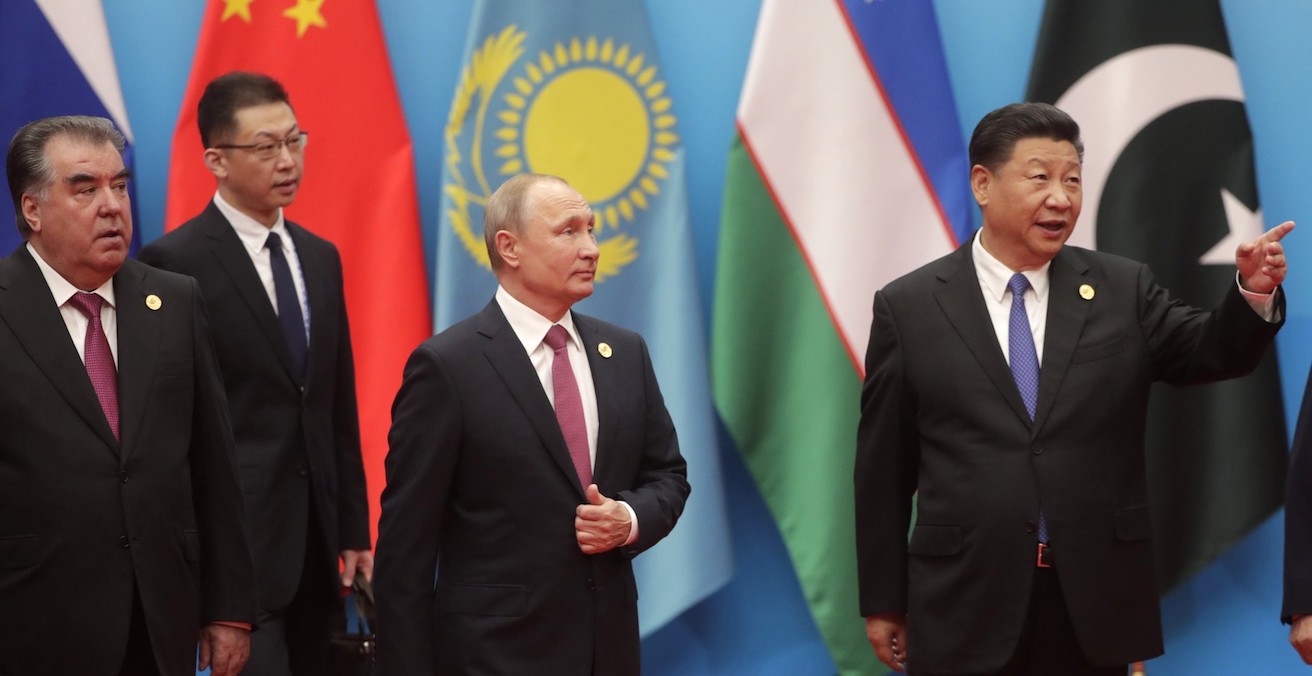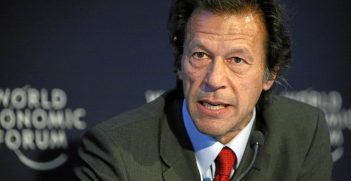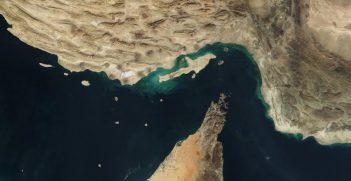No Sign of the NATO of the East

The Shanghai Cooperation Organisation met earlier this month in Qingdao. Despite its development potential, there is not much evidence that it will evolve to become an anti-Western centre of power.
The Shanghai Cooperation Organisation (SCO) summit in China’s city of Qingdao on 9-10 June was the first to take place after its membership expanded last year. India and Pakistan joined China, Kazakhstan, Kyrgyzstan, Russia, Tajikistan and Uzbekistan in what the SCO Secretary-General, Tajik diplomat Rashid Alimov, called “one of the largest trans-regional organisations in the world, with close to half of the global population” possessing “unlimited development potential”.
The SCO event coincided with another important international gathering: the disastrous G7 meeting in Canada which exposed deep economic rifts between the US and other leading Western nations. Pundits were quick off the mark to comment that the incumbent global elite was falling apart, while on the other side “there were China, India, Russia and a slew of Central Asian states pledging to become a more dynamic and influential grouping.”
A closer look at what actually transpired at Qingdao does not yield much evidence of the SCO’s normative and institutional evolution or its coalescence as an anti-Western geopolitical centre of power.
Despite the summit’s in-house promotion as a milestone of historical significance, its actual output is underwhelming in terms of game-changing global initiatives or measurable progress in the cooperation projects launched earlier.
The SCO continues to operate as a largely virtual organisation with only two permanent bodies: the Regional Anti-Terrorist Structure (RATS) and a tiny Secretariat. The long-awaited Development Bank of the SCO and the SCO Development Fund have failed to materialise again. The summit participants signalled their commitment to “international relations of a new type” without elaborating what this really means. Settling crises in Afghanistan, Syria, the Middle East and the Korean Peninsula according to the principles of international law as well as keeping the Iran nuclear deal intact hardly constitutes a revisionist agenda in global affairs. The summit deliberations patently lacked the anti-Western spirit that was palpable in SCO pronouncements a decade ago.
The abundance of references to peace, stability and good neighbourliness in the SCO space contained in the Qingdao Declaration points to the organisation’s enduring utility as a platform for regional dialogue and conflict resolution. Countering transborder security threats can also be seen as an SCO success story: the director of the Regional Anti-Terrorist Structure (RATS) reported 600 terrorist crimes foiled and 2,000 members of terrorist groups captured in 2013-2017. India and Pakistan have put aside their differences to take part in RATS operations, at least at the level of experts. The Program on Cooperation in Combating Terrorism, Separatism and Extremism for 2019–2021 and the Anti-Narcotics Strategy of the SCO Member States for 2018-2023 were among the few concrete measures adopted by consensus at Qingdao.
The limits of collective action by the SCO were aptly illustrated by the summit’s deliberations on matters of regional economic development. Essentially these boiled down to bilateral negotiations between the host nation and other attendees over the parameters of China’s infrastructure “project of the century”, the Belt and Road Initiative (BRI).
For Beijing, the political and economic (but not security) dimensions of the SCO have been of diminishing importance in recent years. Xi Jinping’s report to the 19th CPC Congress in 2017 did not mention the bloc a single time in its foreign policy section. At Qingdao, the trend was reversed somewhat: the SCO proved to be useful as a vehicle for BRI promotion. As a prominent Chinese expert noted, “the BRI concept has already been embedded into the SCO.” The summit served the purpose of advancing Xi’s grand vision in a series of bilateral talks between China’s leader and his colleagues from other member states.
This mission was not met with universal success. India’s Prime Minister Narendra Modi refused to endorse the BRI, flatly rejecting the China–Pakistan Economic Corridor (CPEC) component.
Russia’s President Vladimir Putin lent his support to the BRI with a very important caveat: Moscow should have an equal say in how it is realised in the vast expanses of former Soviet Eurasia. In the Kremlin’s parlance this is known as the Eurasian Economic Partnership (EEP), which will effectively force the BRI to operate in unison with the Russian-led Eurasian Economic Union (EEU). Such an arrangement is hardly acceptable to Beijing; thus Putin’s remarks on the EEP at Qingdao were met with polite silence on the part of the hosts. Nonetheless, Russian experts hailed the summit as a success on account of the deepening military and security cooperation between Moscow and Beijing and great personal chemistry between Putin and Xi, described as an “apotheosis of bromance”.
Kazakhstan positions itself as an indispensable crossroads of Greater Eurasia connecting the BRI and EEU, Central Asia and ASEAN, the European Union and China. President Nursultan Nazarbayev proposed at the summit that the Beijing-Astana-Moscow-Berlin high-speed railroad be constructed as a priority SCO project.
How all these competing plans in the SCO space relying on Chinese money can be reconciled remains to be seen.
Iran, which has observer status in the SCO, was represented by President Hassan Rouhani in Qingdao. He succeeded in obtaining Chinese and Russian support for the preservation of the 2015 nuclear deal dismantled by Trump. However, there was no indication that Iran was getting any closer to acquiring full membership in the SCO after 11 years of trying. While Beijing is happy to ramp up trade with Iran and discuss, in loose terms, the latter’s involvement in the BRI, it is reluctant to commit to standing behind Iran if tensions with the US escalate further.
The Qingdao meeting illustrated the trajectory of the SCO’s development in the mid-term perspective. It will continue to thrive as a diplomatic forum and a cooperative vehicle for managing security issues in the region. Its economic development agenda will be completely overshadowed by China’s BRI initiative. Finally, it is unlikely to evolve as the “NATO of the East” uniting the Eurasian heartland as a cohesive bloc to challenge the West in a military and normative way.
Dr Kirill Nourzhanov is a senior lecturer at the Centre for Arab and Islamic Studies at the Australian National University (ANU). He has an MA from Moscow State University and a PhD from ANU.
This article is published under a Creative Commons Licence and may be republished with attribution.





